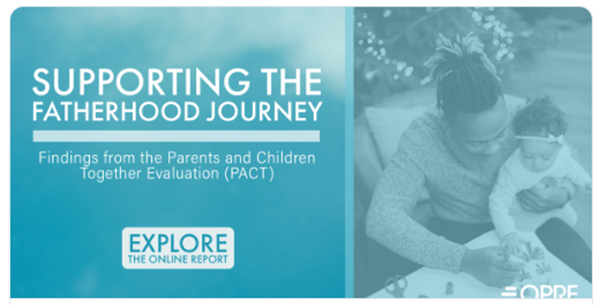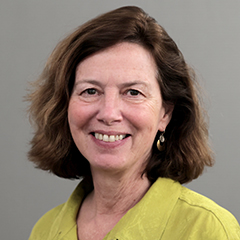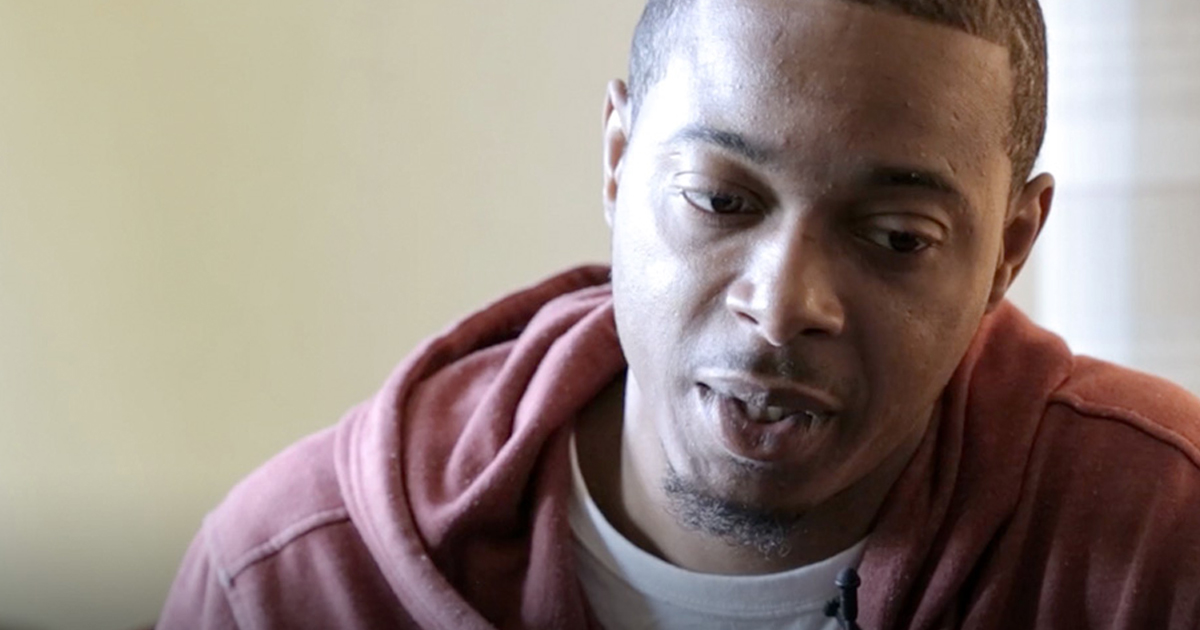In 2013, I led a team of researchers who traveled to Minnesota, Kansas, and Missouri for a series of in-depth interviews with fathers for the Parents and Children Together (PACT) evaluation. Funded by the Administration for Children and Families under the U.S. Department of Health and Human Services, PACT is a multi-year evaluation of Healthy Marriage and Responsible Fatherhood grant programs. As part of our examination of Responsible Fatherhood programs, the Mathematica evaluation team assessed the impact and implementation of four Responsible Fatherhood grant programs designed to help lower-income fathers become better parents, providers, and role models for their children. The opportunity to interview not just program staff but also to conduct one-on-one in-depth interviews with the fathers served by these programs made this experience particularly meaningful, both to us as evaluators and to the dads we met.
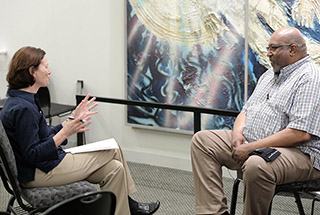
Holcomb interviews Stan Hill, a former manager at Urban Ventures.
PHOTO BY RICH CLEMENT
Initially, I wondered if anyone would truly open up to us, but very quickly I realized that most of the fathers who we interviewed for this study were very eager to share their life experiences. Over the course of three rounds of in-depth interviews, which occurred between 2013 and 2016, we asked fathers—most of whom live in lower-income neighborhoods—about their childhoods, their relationships with their children and the mothers of their children, their economic circumstances, and the daily challenges they face in their lives. We wanted to better understand how their participation in Responsible Fatherhood programming fit within the broader context of their lives. The value of hearing directly from these fathers, in their own words, was incalculable. I was mesmerized by their candor and openness. And I learned just how motivated they were to be involved in their children’s lives and how challenging it could be to translate that desire into action.
It was the most rewarding research I’ve ever done.
Early on, one father said something that will stick with me forever: “Thank you for asking me about what it was like growing up and about the kind of dad I want to be. No one has ever asked me what I thought. I’m glad someone cares.”
Let that sink in. “No one has ever asked me what I thought.” This was a reoccurring theme throughout our interviews with dads.
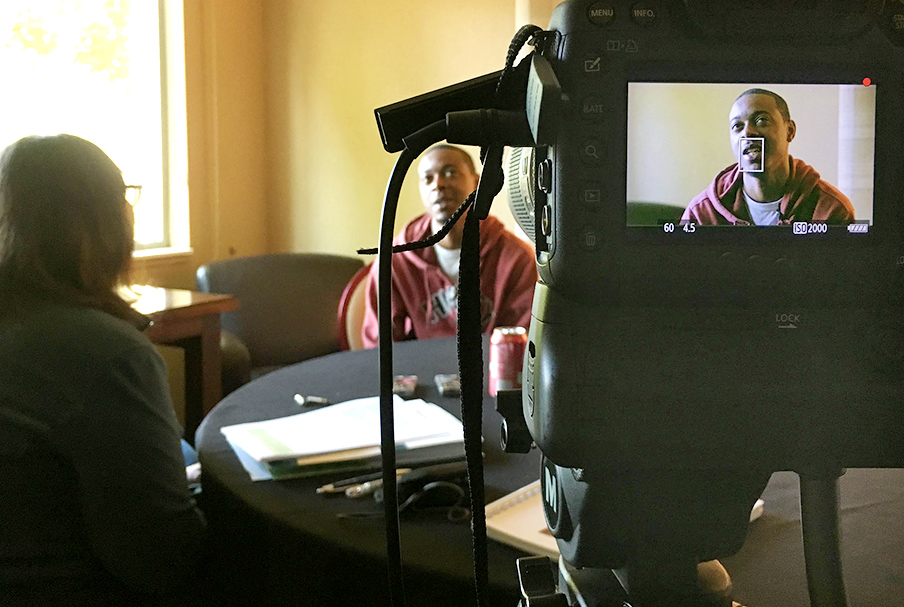
PACT team member interviews a Minneapolis-based father.
PHOTO BY RICH CLEMENT
I’ve been a researcher for more than 25 years and have conducted dozens of studies focusing on program implementation. For the most part, the perspectives of the people participating in the programs we study have been badly neglected. Focus groups with participants are probably the closest we’ve come to capturing the participants’ perspectives. Thankfully, the field is changing. The PACT evaluation offered a rare opportunity to incorporate in-depth interviews with fathers as a major part of the research design.
Now I’m seeing more studies include in-depth interviews with the people who are or who could be served through a variety of policies and programs, a method that many more research funders are now encouraging. What sets these interviews apart is the voice we’re capturing.
That voice gives the work:
- Authenticity: We capture rich information and context, which helps us better understand the human experience, strengthen qualitative findings, and identify opportunities to improve program design, participant recruitment, and engagement.
- Relevancy: Through the strength of first-person voice, the human experience is captured and shared with the public.
- Accessibility: Broad audiences might care about different things, and mixed research methods provide multiple pathways to access study information, findings, and lessons learned.
I hear concerns that in-depth interviews can miss the boat when it comes to the need for research, rigor, and objectivity. While working on PACT I met Kathryn Edin, a trailblazer in this area, and a consultant for Mathematica on the project's qualitative study. Kathy showed me how in-depth interviews can be both rigorous and enlightening. We ensure that rigor is built into the way we conduct the interviews, ask the questions, establish rapport and elicit candor, and analyze the responses. Although it’s important not to overstate the value of the participant voice, it brings a new lens to better understanding why interventions may or may not work.
An important aspect of my work is to assess how well a program is meeting the needs of the population it serves. Therefore, it makes sense to have these conversations, to record them, and to learn from them. Most importantly, in-depth interviewing can give a voice to people who are often underrepresented.
I have no question that my experience conducting studies that take a mixed-methods approach, including in-depth interviews with participants, has helped me become a better researcher. It makes the work stronger. It brings valuable insight to the field, through the questions we try to answer and the programs we seek to improve. We’re essentially applying the principles of human-centered research design into social service delivery. We do this by walking in the shoes of others. By hearing what they are hearing. By seeing what they are seeing. Such insights help us better design, implement, and eventually evaluate programs.
These insights also help us share the research story with broader audiences. For example, we produced an online report as part of our PACT study. It used illustrative quotes, videos, images, and testimonials from actual program participants to tell the story. People who were interested in this work learned about it from the fathers themselves, in their own voices.
“I’m glad someone cares.”
Hearing that jolted me. Within the research community there’s often an understanding that of course we care, why else would be doing the work? But how often do we let others—especially the very people we’re interacting with on a study—see that we care about their well-being, let alone their perspective? Far too infrequently. That can and should change.

